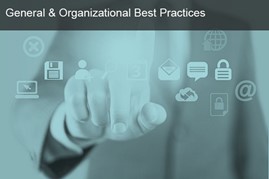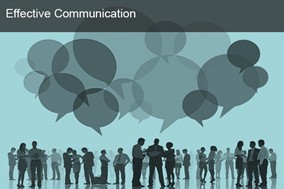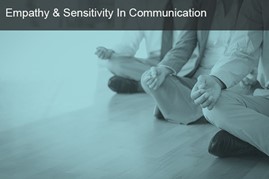The health information industry has identified a gap between traditional education/technical skills and the employability skills needed for workplace success in any position, regardless of industry.
Communication, both verbal and nonverbal, is at the foundation of everything we do and say --- and is especially important in the modern workplace.
Use this free virtual training in leadership communications to supplement your technical curriculum and on-the-job training.
The focus of this module is to heighten learners' awareness of workplace communications, with the end result of becoming a more competent communicator overall. Target areas include:
- General and organizational best practices
- Information sharing
- Effective communication
- Empathy and sensitivity in communication
- Motivating others
- Conflict management
Click on the image below to begin each leadership communications module.
|
|
General & Organizational Best Practices
|
|
|
|
|
|
|
Conflict Management  |
|
The Common Employability Skills model can take its place as the foundation for all industries to map skill requirements to credentials and to career paths. In doing so, this model allows employees to understand the skills that all industries believe prepare individuals to succeed.
Educators and other learning providers will also have an industry-defined roadmap for what foundational skills to teach, providing individuals the added benefit of being able to evaluate educational programs to ensure they will in fact learn skills that employers value.






